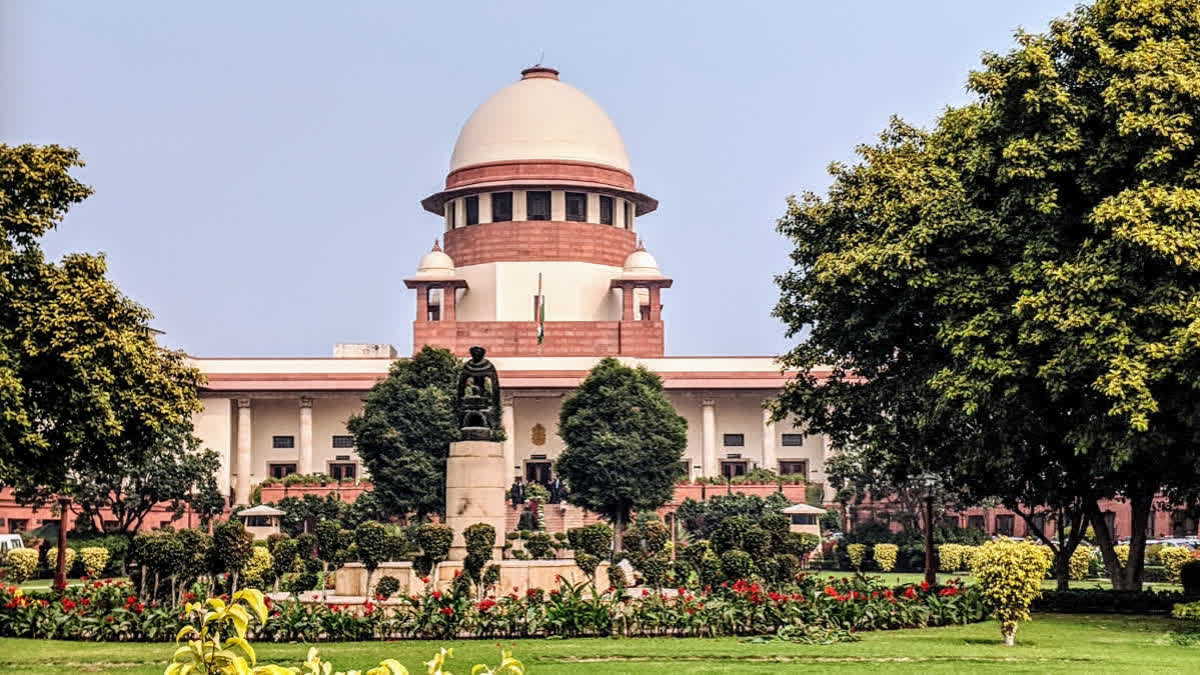New Delhi: The Supreme Court on Thursday deplored the allegations of grave offences like cheating, cruelty, rape and unnatural offences, in recent times being used as a combined package in most of the complaints related to matrimonial disputes. The apex court stressed that women need to be careful about the fact that the strict provisions of the law in their hands are beneficial legislations for their welfare and not means to chastise, threaten, domineer or extort their husbands.
The apex court also stressed that the wife's entitlement to maintenance has to be decided based on the factors applicable to her and not depend on what the husband had paid to his ex-wife or solely on his income. A bench comprising justices B V Nagarathna and Pankaj Mithal said the provisions in the criminal law are for the protection and empowerment of women but sometimes are used by certain women more for purposes that they are never meant for.
Justice Nagarathna, who authored the judgment on behalf of the bench, said women need to be careful about the fact that these strict provisions of the law in their hands are beneficial legislations for their welfare and not means to chastise, threaten, domineer or extort from their husbands. “In recent times, the invocation of Sections 498A, 376, 377, 506 of the IPC as a combined package in most of the complaints related to matrimonial disputes is a practice which has been condemned by this court on several occasions”, said Justice Nagarathna, in the 73-page judgment.
Justice Nagarathna said in certain cases, the wife and her family tend to use a criminal complaint with all the above serious offences as a platform for negotiation and as a mechanism and a tool to get the husband and his family to comply with their demands, which are mostly monetary in nature.
The bench said that sometimes this is done in a fit of rage after a marital dispute, while at times it is a planned strategy in other cases, and added, “Unfortunately, it is not just the parties who are involved in this abuse of the process of law”.
The bench said police personnel are sometimes quick to jump into action in selective cases and arrest the husband or even their relatives including aged and bedridden parents and grandparents of the husband. The bench said the trial courts are hesitant in granting bail to the accused persons being swayed by the “gravity of the offences” mentioned in the FIR.
“The collective effect of this chain of events is often overlooked by the actual individual players involved therein, which is that even minor disputes between husband and wife tend to snowball into ugly prodigious battles of ego and reputation and washing dirty linen in public…..”, said Justice Nagarathna.
In the present case, the petitioner-wife sought equalisation of status not just with the respondent-husband but also with his ex-wife. The bench said in its opinion, this cannot be an acceptable approach.
“The fixation of alimony depends on various factors and there cannot be any straight-jacket formula for the same. Thus, the petitioner cannot simply claim an amount equal to what the ex-wife of the respondent had received or on the basis of the income of the respondent”, said the bench.
The bench said it has to not just consider the income of the respondent-husband here, but also bear in mind other factors such as the income of the petitioner-wife, her reasonable needs, her residential rights, and other similar factors. “Thus, her entitlement to maintenance has to be decided based on the factors applicable to her and not depend on what the respondent had paid to his ex-wife or solely on his income”, said the bench.
The bench said the wife is entitled to be maintained as far as possible in a manner that is similar to what she was accustomed to in her matrimonial home while the parties were together and added, “but once the parties have separated, it cannot be expected of the husband to maintain her as per his present status all his life”.
